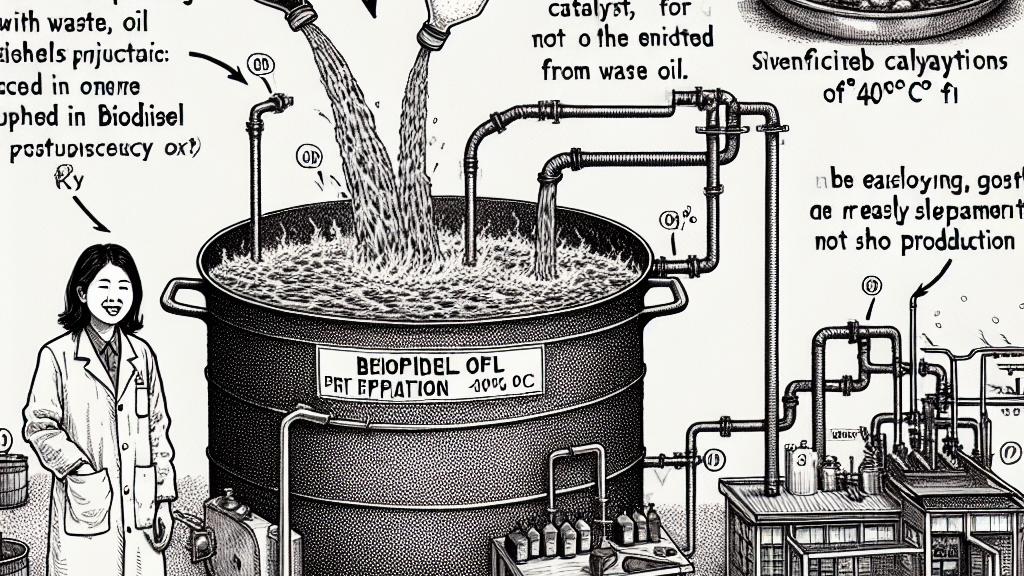Revolutionizing Biodiesel Production from Waste Oil
Overview
- Groundbreaking method transforms waste oil into biodiesel with ease.
- Low-temperature process significantly cuts energy use and costs.
- Innovative solution promises sustainability and reduced emissions in industrial fuel.

An Exciting Breakthrough in the U.S.
Imagine a scenario where waste oil—the kind used for frying—can be easily converted into biodiesel. This innovative dream is now a reality, thanks to chemists at the University of California, Santa Cruz. They have developed an extraordinary method that utilizes sodium tetramethoxyborate, a unique catalyst that simplifies biodiesel production significantly. Unlike traditional processes that often require high temperatures, this cutting-edge technique operates at a mere 40°C (104°F). This revolutionary reduction in temperature saves precious energy and lowers production costs. Moreover, the separation of biodiesel from its byproducts is as easy as simply pouring the mixture off! This ease of production makes biodiesel a far more appealing option for industries that have long relied on conventional fossil fuels.
Overcoming Historical Challenges in Biodiesel Production
Biodiesel, while a promising alternative, has always faced several daunting challenges. Historically, it has struggled with high costs, complex refining procedures, and environmental concerns related to palm oil sourcing, which often leads to deforestation. To put it into perspective, in 2022, the U.S. transportation sector consumed approximately 3 million barrels of diesel daily, a reliance that accounts for a whopping 10% of national carbon dioxide emissions. However, the newly discovered production method opens the door to transformative possibilities. Envision this: instead of relying solely on fossil fuels, what if the biofuel market could expand dramatically from a mere 6%? With supermarkets, delivery trucks, and shipping fleets all potentially making the switch, this innovative process can facilitate a greener transition without necessitating extensive changes to existing diesel engines.
Environmental and Economic Gains for a Sustainable Future
The benefits of this breakthrough extend far beyond just economic gains. As a carbon-neutral fuel, biodiesel plays a vital role in the fight against climate change, helping to reduce our global reliance on fossil fuels. Consider the impact: if farms and transportation companies embraced biodiesel, we could see substantial reductions in their overall carbon footprints. Additionally, this innovative new method regenerates its most costly ingredient, making it even more cost-effective and sustainable over time. Such advancements could transform the energy landscape, offering not only economic stability but also a pathway to a greener future for our planet. This movement toward biodiesel is more than just a technological feat; it represents a pivotal shift in how we meet our energy needs while nurturing the environment and ensuring a sustainable world for generations to come.

Loading...